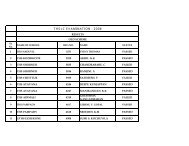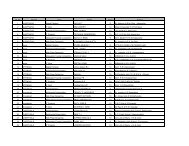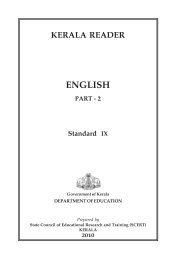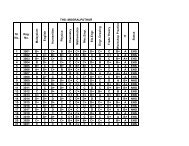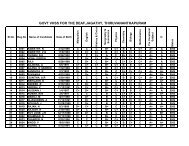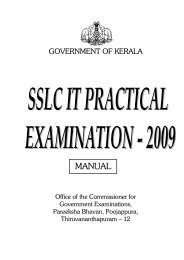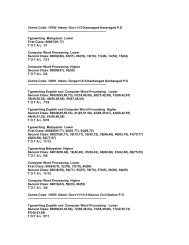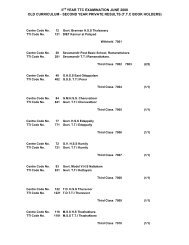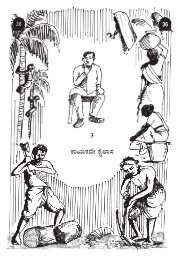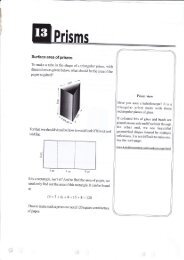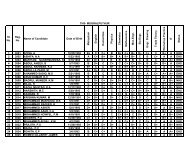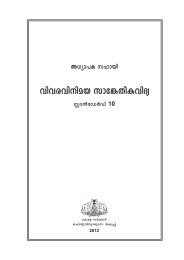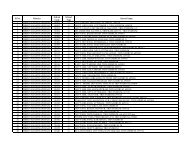Vol - II - IT@School
Vol - II - IT@School
Vol - II - IT@School
Create successful ePaper yourself
Turn your PDF publications into a flip-book with our unique Google optimized e-Paper software.
EDITING<br />
Activity 3<br />
1. Identify the prepositional phrases in the passage given below. Pick out the preposition and the<br />
attached Noun Phrase in each.<br />
2. Identify the Prepositional Phrases that are attached to Noun Phrases.<br />
Activity 4<br />
Read the passage paying attention to the italicised words.<br />
The king : Call my sons now itself!<br />
The king : I’ve called you to give you something. Can you guess what it would be?<br />
Prince I : Whatever you give to me is precious. I’ll preserve it.<br />
Courtier 1 : How wise!<br />
The king : What do you think, my dear?<br />
Prince <strong>II</strong> : Whatever you give I will give it back whenever you ask me.<br />
Courtier 2 : Noble idea!<br />
The king : And you my dear!<br />
Prince <strong>II</strong>I : Whatever you give will add to my wealth.<br />
The king : Bring it!<br />
(A soldier brings three silver boxes. The king gifts them to his sons.)<br />
1. Are these words nouns or the other words that we see in a Noun Phrase?<br />
2. What do they describe?<br />
i. These words talk about an action, or an event (e.g. bring)<br />
ii. Some words refer to a state of someone or something (e.g. is )<br />
iii. These words take different forms. For example, the word give has the forms gives,<br />
giving, given, gave, and give.<br />
iv. These words are categorized as verbs<br />
136 English Coursebook V<strong>II</strong>I



